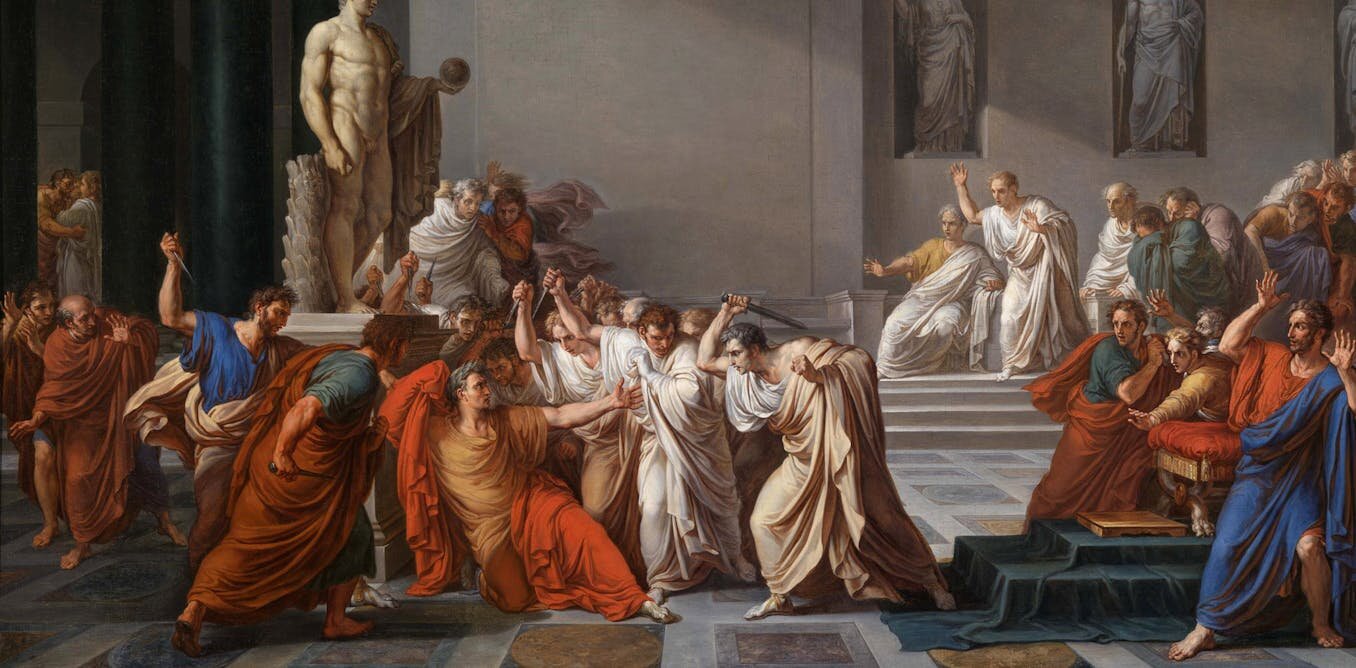I joined Turchin and a few others who were establishing a new field—a new way to investigate history. It was called cliodynamics after Clio, the ancient Greek muse of history, and dynamics, the study of how complex systems change over time. Cliodynamics marshals scientific and statistical tools to better understand the past.
The aim is to treat history as a "natural" science, using statistical methods, computational simulations and other tools adapted from evolutionary theory, physics and complexity science to understand why things happened the way that they did.
![]()
One of the most common patterns that has jumped out is how extreme inequality shows up in nearly every case of major crisis. When big gaps exist between the haves and have-nots, not just in material wealth but also access to positions of power, this breeds frustration, dissent and turmoil.
"Ages of discord", as Turchin dubbed periods of great social unrest and violence, produce some of history's most devastating events. This includes the US civil war of the 1860s, the early 20th-century Russian Revolution, and the Taiping rebellion against the Chinese Qing dynasty, often said to be the deadliest civil war in history.
All of these cases saw people become frustrated at extreme wealth inequality, along with lack of inclusion in the political process. Frustration bred anger, and eventually erupted into fighting that killed millions and affected many more.
![]()
Perhaps one of the most surprising things is that inequality seems to be just as corrosive for the elites themselves. This is because the accumulation of so much wealth and power leads to intense infighting between them, which ripples throughout society.
In the case of Rome, it was the wealthy and powerful senators and military leaders like Julius Caesar who seized on the anger of a disaffected populace and led the violence.
This pattern also appears at other moments, such as the hatred between southern landowners and northern industrialists in the run up to the US civil war and the struggles between the Tsarist rulers and Russia's landed nobility during the late 1800s.
Meanwhile, the 1864 Taiping rebellion was instigated by well educated young men, frustrated at being unable to find prestigious positions in government after years of toiling away at their studies and passing the civil service exams.
What we see time and again is that wealthy and powerful people try to grab bigger shares of the pie to maintain their positions. Rich families become desperate to secure prestigious posts for their children, while those aspiring to join the ranks of the elite scratch and claw their way up. And typically, wealth is related to power, as elites try to secure top positions in political office.
![]()
These patterns probably sound familiar. Consider the college admissions scandal in the US in 2019.
![]()
Donald Trump is only one recent and fairly extreme version of this motif that pops up time and again during ages of discord
![]()
If the past teaches us anything, it is that trying to hold on to systems and policies that refuse to appropriately adapt and respond to changing circumstances—like climate change or growing unrest among a population—usually end in disaster. Those with the means and opportunity to enact change must do so, or at least to not stand in the way when reform is needed.
![]()



How the fuck does an academic study history in any serious way without trying to gather and use this kind of data? If you're not doing historical materialism what the fuck even are you studying?
lots of history people just get really into memorizing dates and 'stories' where they pick some arbitrary window of time and use it to tell a shoe-horned narrative that propagates their worldview
Every time I learn something about how a topic of interest of mine is formally studied I am reaffirmed in being a guy that just reads every book ever instead of wasting my money on higher education.
The more you learn about academic "historians" the more you learn how little they know how to apply their own field's methods to topics they don't like and how incapable they are of seeing their own biases. They understand great man history is wrong and absurdly incorrect, except when it comes to socialist states, then it's all "Evil Stalin did this" or "Totalitarian dictator Mao did that" No understanding or analysis that they apply to every other state in history. It's like their brains short circuit.
I love when western historians invent exotic names for things Chinese states did that every other state did too but it's completely different because they're inscrutable orientals
Hitler failed art school. As a result, Hitler made good speeches because he was mad. His speeches inspired people to commit atrocities. Also, he was secretly gay and had 1 testicle and we should kill him as a baby if we ever get a Time Machine. It’s that simple.
When I'm in charge of what information is suppressed, Hitler being a failed art student is top of my list or close. It seems to be the thing all lives fall in love with.
Why not abduct him and baby Stalin, so we could have a dictator boxing show?
Idealism is the predominant mode of history taught in schools and universities.